‘Post-industrialism’ is often understood in public discourse as a code for decay, deprivation, poverty, unemployment, extremism, or racism. These stereotypical and stigmatising images of post-industrial communities usually enter a society’s consciousness through the media. However, whether residents of post-industrial centres identify with these public narratives, or even perceive themselves as outsiders, disempowered and disadvantaged—in other words, as ‘marginalised’—is one of the research gaps that the VOICES project seeks to fill.
Six communities, countless stories
The project is being implemented in six post-industrial cities, all of which have experienced the rise and fall of industrial work: Redcar, Rotherham and Middlesbrough in the North of England, and Weißwasser, Lauchhammer and Eisenhüttenstadt in East Germany. Once thriving industrial hubs, these cities have faced significant economic and social change as a result of the decline of their industries. Today, they continue to navigate this structural transformation and to address the challenges and opportunities it presents. Through this project, we aim to document and share the stories of residents who have lived through these profound changes, capturing their resilience and insights as they adapt to new economic realities.
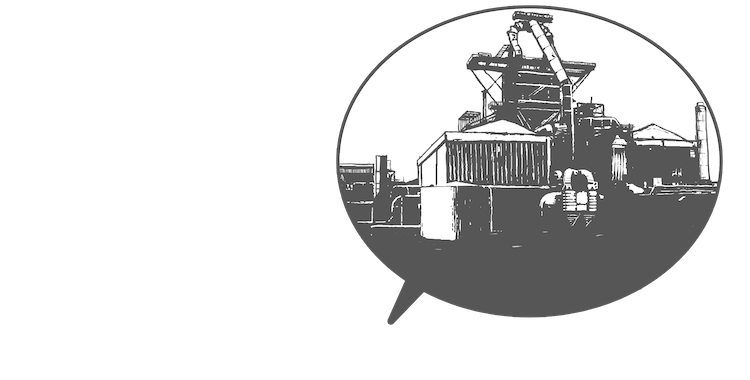 Redcar – Removed from the long sandy beaches and seafront promenade stand proud the remnants of Redcar’s coal and steel industry. Steel was produced in Redcar for nearly a century, with blast furnaces being built in the local area since the mid-19th century. Until the 1980s, the local steelworks were the primary employer and generations of families relied on the industry. The closure of the last remaining blast furnace in 2015 was a huge blow to those working in the plant as well as to the entire region, where steel runs in the blood of many. Several of its defining features, such as the Dorman Long tower, have since been demolished. While the Redcar site of the steelworks lie largely abandoned and derelict, there are indications that the site may be revived for electric steel production in the near future.
Redcar – Removed from the long sandy beaches and seafront promenade stand proud the remnants of Redcar’s coal and steel industry. Steel was produced in Redcar for nearly a century, with blast furnaces being built in the local area since the mid-19th century. Until the 1980s, the local steelworks were the primary employer and generations of families relied on the industry. The closure of the last remaining blast furnace in 2015 was a huge blow to those working in the plant as well as to the entire region, where steel runs in the blood of many. Several of its defining features, such as the Dorman Long tower, have since been demolished. While the Redcar site of the steelworks lie largely abandoned and derelict, there are indications that the site may be revived for electric steel production in the near future.
How do the residents of Redcar recall the days in which the steel fires and the blast furnaces dominated the skyline? How have they experienced the decline of the steel industry – between job losses, transformation, and the hope for new beginnings?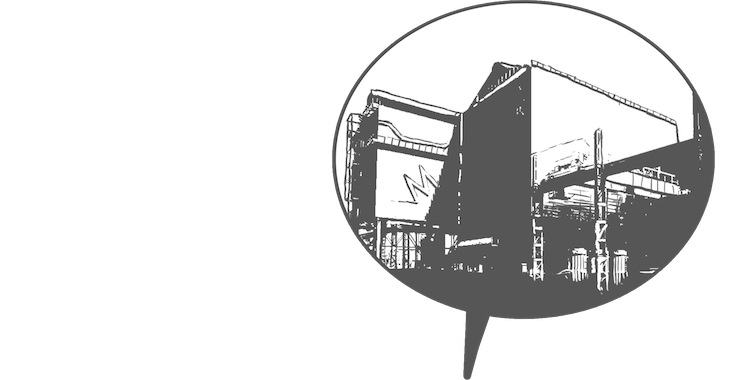 Rotherham – With iron production dating back to Roman times, the abundance of coal fields turned Rotherham into a key settlement during the Industrial Revolution. In the late 18th and 19th centuries, the historical market town in South Yorkshire became known for its coal and, later, steel industry, globally shipping steel used in bridge construction and the railway industry and supplying the British military and its war efforts. While the steel industry is still present in Rotherham with the Liberty steel plant, the town has faced economic challenges and transformation since the industry’s decline in 1980s and 1990s. Some former industrial sites have been imbued with new life, including the former Templeborough steelworks – informally called Steelos – which has given way to the popular Magna Science Adventure Centre, reviving the town’s steel making heritage and some of the former plant’s electronic arc furnaces.
Rotherham – With iron production dating back to Roman times, the abundance of coal fields turned Rotherham into a key settlement during the Industrial Revolution. In the late 18th and 19th centuries, the historical market town in South Yorkshire became known for its coal and, later, steel industry, globally shipping steel used in bridge construction and the railway industry and supplying the British military and its war efforts. While the steel industry is still present in Rotherham with the Liberty steel plant, the town has faced economic challenges and transformation since the industry’s decline in 1980s and 1990s. Some former industrial sites have been imbued with new life, including the former Templeborough steelworks – informally called Steelos – which has given way to the popular Magna Science Adventure Centre, reviving the town’s steel making heritage and some of the former plant’s electronic arc furnaces.
How will this transformation continue and how can it benefit the local community today? How are residents coming to terms with the devaluation of the steel industry? How are they adapting to industrial change and which memories and experiences are kept alive?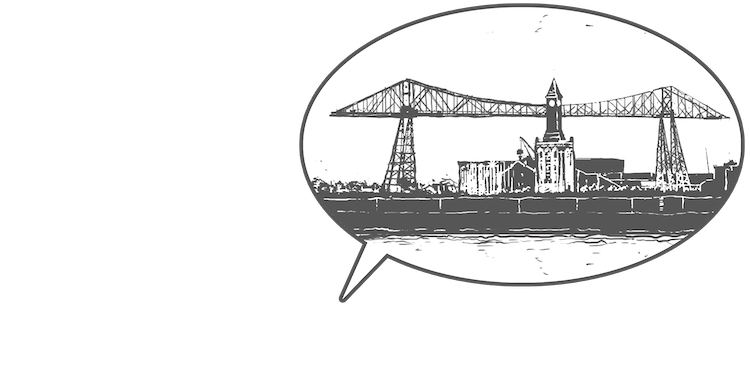 Middlesbrough – Quickly growing from a small farming settlement in the early 19th century, Middlesbrough is now well-known for its industrial heritage. Middlesbrough was set up as a new coal port on the banks of the Tees as late as the 1930s. Situated at the heart of the Tees Valley, the settlement rapidly became an industrial powerhouse and, in the Victorian era, grew into a global centre for the iron and steel industry, shipbuilding and chemical industries. Its significance was such that the steel needed to build the Sydney Harbour Bridge in Australia was “Made in Middlesbrough” by steel giant Dorman Long and shipped around the world in the 1930s. Over the Tees towers the Transporter Bridge, which dates back to 1911 and is one of the largest remaining transporter bridges worldwide. It stands proud as a reminder of the town’s origins and industrial heritage – especially in an era in which the coal, iron and steel industry have drastically declined.
Middlesbrough – Quickly growing from a small farming settlement in the early 19th century, Middlesbrough is now well-known for its industrial heritage. Middlesbrough was set up as a new coal port on the banks of the Tees as late as the 1930s. Situated at the heart of the Tees Valley, the settlement rapidly became an industrial powerhouse and, in the Victorian era, grew into a global centre for the iron and steel industry, shipbuilding and chemical industries. Its significance was such that the steel needed to build the Sydney Harbour Bridge in Australia was “Made in Middlesbrough” by steel giant Dorman Long and shipped around the world in the 1930s. Over the Tees towers the Transporter Bridge, which dates back to 1911 and is one of the largest remaining transporter bridges worldwide. It stands proud as a reminder of the town’s origins and industrial heritage – especially in an era in which the coal, iron and steel industry have drastically declined.
How is the decline of the steel industry remembered in a town built around the coal and steel industry? How are residents experiencing changes and challenges in the local industry?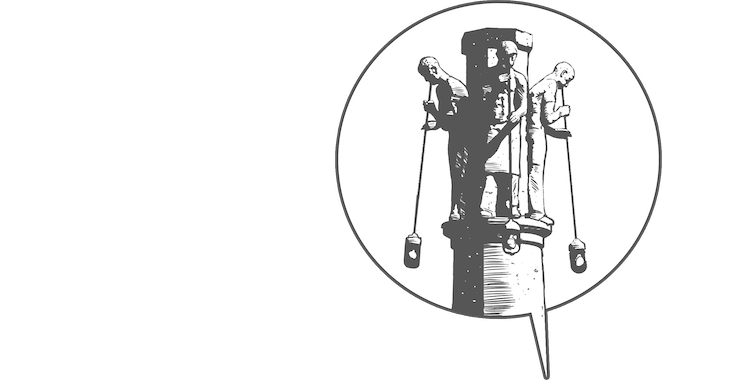 Weißwasser – In the north-east of Saxony lies the city of Weißwasser, a testament to a bygone era when the art of glassmaking dominated life here. As a "glassmaking town", Weißwasser was once one of the most important centres of the European glass industry, producing everything from sturdy window panes to fine crystal glass. The legacy of this glorious era can still be felt today, particularly in the ruins of the Gelsdorf Hut (Gelsdorfhütte), a relic of the town's former industrial and regional importance. The Glassmaker's Fountain (Glasmacherbrunnen) in the square in front of the railway station, originally erected as a war memorial, is also a reminder of the heyday of glass production and symbolises the craftsmanship of the time. But the history of Weißwasser does not end in the past. As the economy has changed, so has the city's identity.
Weißwasser – In the north-east of Saxony lies the city of Weißwasser, a testament to a bygone era when the art of glassmaking dominated life here. As a "glassmaking town", Weißwasser was once one of the most important centres of the European glass industry, producing everything from sturdy window panes to fine crystal glass. The legacy of this glorious era can still be felt today, particularly in the ruins of the Gelsdorf Hut (Gelsdorfhütte), a relic of the town's former industrial and regional importance. The Glassmaker's Fountain (Glasmacherbrunnen) in the square in front of the railway station, originally erected as a war memorial, is also a reminder of the heyday of glass production and symbolises the craftsmanship of the time. But the history of Weißwasser does not end in the past. As the economy has changed, so has the city's identity.
What does this transformation mean for the community today? How are residents coming to terms with change, and what memories remain of the days when glass furnaces burned hot and bright?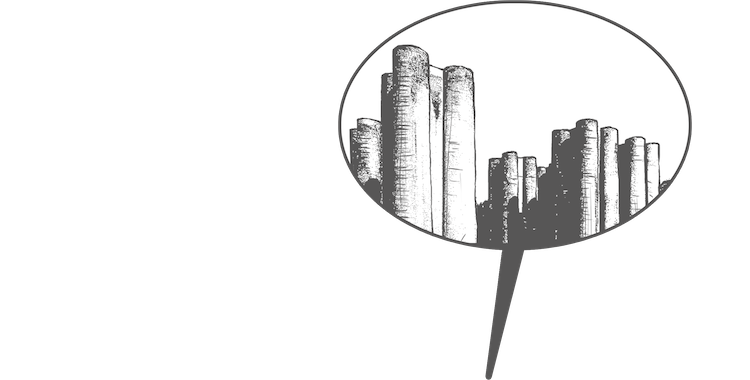 Lauchhammer – Once a centre of lignite mining, the city's residents still recall the distinctive phenol smell that lingered in the air, a constant reminder of the local coking plant. The so-called Bio Towers (Biotürme), which used blast furnace slag to biologically treat phenol-laden wastewater, have now become the city's most iconic industrial monument. Yet Lauchhammer's industrial legacy extended further: with the construction of a new bathtub foundry in the late 1960s, the city became the main supplier of bathtubs for the entire GDR. Today, Lauchhammer is forging a new identity as a city of art casting, while nature steadily reclaims the once-thriving industrial landscapes.
Lauchhammer – Once a centre of lignite mining, the city's residents still recall the distinctive phenol smell that lingered in the air, a constant reminder of the local coking plant. The so-called Bio Towers (Biotürme), which used blast furnace slag to biologically treat phenol-laden wastewater, have now become the city's most iconic industrial monument. Yet Lauchhammer's industrial legacy extended further: with the construction of a new bathtub foundry in the late 1960s, the city became the main supplier of bathtubs for the entire GDR. Today, Lauchhammer is forging a new identity as a city of art casting, while nature steadily reclaims the once-thriving industrial landscapes.
How do the residents of Lauchhammer recall the days when the direction of the wind determined when they could hang laundry in their gardens, in order to avoid coal stains on their clothes? How did they experience the period after the transformation?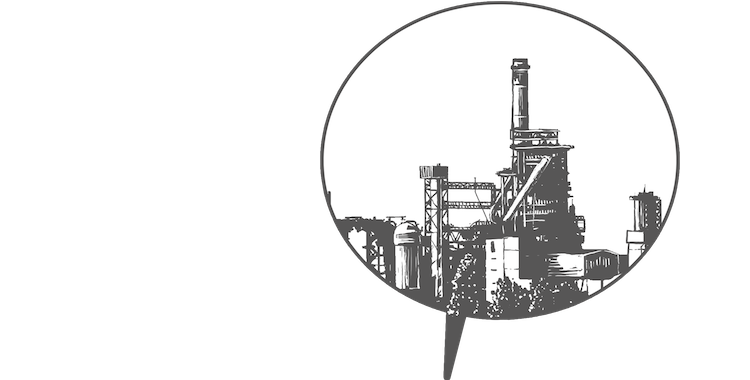 Eisenhüttenstadt – Once a symbol of the GDR's industrial boom, Eisenhüttenstadt today exemplifies the structural transformation of many former industrial towns in eastern Germany. Founded in 1950 as "Stalinstadt," the town was closely associated with the GDR's largest steel combine, creating thousands of jobs. After reunification in 1990, East Germany's heavy industry came under immense pressure. The transition to a market economy led to extensive restructuring and privatisation. The ironworks, now ArcelorMittal Eisenhüttenstadt, also had to adapt, resulting in significant job losses and major challenges for the city.
Eisenhüttenstadt – Once a symbol of the GDR's industrial boom, Eisenhüttenstadt today exemplifies the structural transformation of many former industrial towns in eastern Germany. Founded in 1950 as "Stalinstadt," the town was closely associated with the GDR's largest steel combine, creating thousands of jobs. After reunification in 1990, East Germany's heavy industry came under immense pressure. The transition to a market economy led to extensive restructuring and privatisation. The ironworks, now ArcelorMittal Eisenhüttenstadt, also had to adapt, resulting in significant job losses and major challenges for the city.
How do people remember the time when their city was one of the flagships of GDR industry? How did people cope with these changes and the transition to modernisation?
Work packages: media, identity, dissemination
Using a systematic research design informed by critical discourse theory and inequality research, the project aims to contrast an elite-centred with a grassroots perspective on the marginalisation of post-industrial milieus: first, by examining the role of the media as key agents in the public construction of post-industrial marginalisation and the formation of post-industrial marginalised identities (top-down); and second, by exploring the modes of identity formation of residents of post-industrial centres against these dominant mass-mediated narratives (bottom-up).
Following a cross-national comparative approach, the project is therefore divided into two thematic work packages (WPs), each focusing on distinct research strands: media structures and the identity of residents in post-industrial centres. The first work package (WP1) will investigate media regulation, journalistic and social media production, journalists’ backgrounds, and media representation from a “top-down” perspective. The second work package (WP2) will address identity-related research from a “bottom-up” perspective. In this work package, storytelling is at the heart. Given that media consumption intersects both areas, this aspect of the research will be collaboratively explored by both work packages.
The third work package, dissemination, focuses on communicating and publishing the results of the project to a wide audience. This will include publishing in academic journals, presenting at conferences, and creating an online archive.